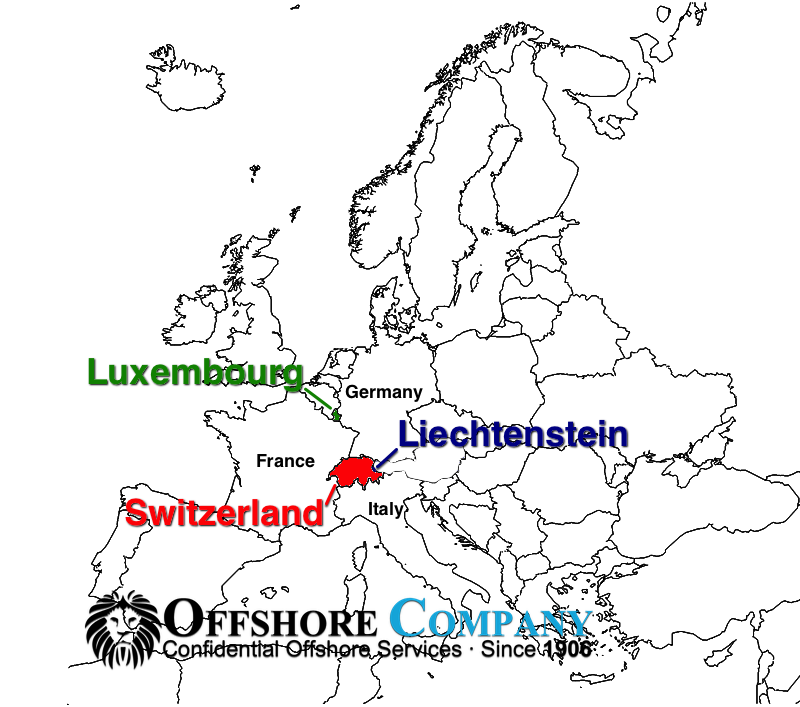Offshore Company Formation: Secret Methods to Increase Your Organization
Offshore Company Formation: Secret Methods to Increase Your Organization
Blog Article
Techniques for Cost-Effective Offshore Business Development
When thinking about overseas business development, the pursuit for cost-effectiveness becomes an extremely important worry for services seeking to increase their operations worldwide. In a landscape where fiscal vigilance rules supreme, the strategies used in structuring overseas entities can make all the difference in achieving financial efficiency and functional success. From browsing the intricacies of territory option to executing tax-efficient frameworks, the trip towards establishing an offshore existence is rife with challenges and chances. By exploring nuanced techniques that mix lawful conformity, monetary optimization, and technical advancements, companies can begin on a path in the direction of offshore business development that is both financially sensible and purposefully sound.
Selecting the Right Jurisdiction
When establishing an overseas business, picking the ideal jurisdiction is a vital choice that can significantly affect the success and cost-effectiveness of the formation process. The jurisdiction chosen will figure out the regulatory structure within which the company runs, affecting taxation, reporting demands, privacy regulations, and overall business adaptability.
When choosing a territory for your overseas business, several aspects should be thought about to guarantee the choice aligns with your critical goals. One critical element is the tax obligation regime of the territory, as it can have a considerable effect on the company's productivity. Additionally, the degree of governing conformity needed, the political and financial stability of the jurisdiction, and the simplicity of working should all be assessed.

Moreover, the track record of the jurisdiction in the international organization neighborhood is important, as it can affect the assumption of your firm by clients, partners, and economic institutions - offshore company formation. By carefully examining these factors and seeking expert advice, you can select the ideal territory for your overseas firm that maximizes cost-effectiveness and sustains your business purposes

Structuring Your Business Effectively
To guarantee ideal performance in structuring your offshore company, thorough focus must be given to the business framework. By establishing a transparent ownership structure, you can guarantee smooth decision-making processes and clear lines of authority within the company.
Next, it is vital to take into consideration the tax obligation effects of the picked structure. Different jurisdictions provide varying tax benefits and incentives for offshore companies. By carefully assessing the tax laws and regulations of the chosen territory, you can optimize your firm's tax obligation effectiveness and minimize unnecessary expenses.
Furthermore, keeping proper paperwork and records is crucial for the efficient structuring of your overseas company. By keeping exact and updated documents of monetary purchases, company decisions, and compliance papers, you can make certain openness and responsibility within the organization. This not only helps with smooth operations yet likewise assists in showing compliance with governing demands.
Leveraging Innovation for Savings
Efficient structuring of your overseas business not only rests on careful interest to business frameworks but also on leveraging modern technology for cost savings. In today's electronic age, technology plays a crucial duty in improving procedures, lowering expenses, and raising effectiveness. One way to utilize innovation for financial savings in offshore firm development is by utilizing cloud-based solutions for information storage and collaboration. Cloud modern technology eliminates the requirement for pricey physical facilities, reduces upkeep expenses, and provides adaptability for remote work. Furthermore, automation devices such as digital signature platforms, accounting software, and task monitoring systems can dramatically lower hand-operated labor costs and boost general performance. Embracing online communication devices like video conferencing and messaging applications can also bring about set discover this info here you back financial savings by lowering the requirement for traveling expenses. By integrating innovation strategically into your overseas business development process, you can attain substantial savings while enhancing operational effectiveness.
Minimizing Tax Liabilities
Utilizing calculated tax obligation preparation strategies can effectively decrease the financial concern of tax responsibilities for overseas business. One of one of the most usual methods for reducing tax responsibilities is with revenue moving. By distributing earnings to entities in low-tax territories, offshore companies can legally lower their total tax obligation responsibilities. Furthermore, taking advantage of tax obligation rewards and exemptions used by the territory where the offshore firm is signed up can lead to substantial financial savings.
One more strategy to reducing tax obligation responsibilities is by structuring the overseas company in a tax-efficient way - offshore company formation. This involves meticulously creating the possession and functional structure to enhance tax obligation advantages. For instance, setting up a holding business in a jurisdiction with positive tax obligation legislations can aid minimize and combine profits tax exposure.
Furthermore, remaining updated on international tax policies and conformity requirements is important for lowering tax responsibilities. By making certain strict adherence to tax regulations and regulations, offshore firms can avoid costly penalties and tax conflicts. Looking for expert recommendations from tax obligation specialists or lawful specialists concentrated on global tax issues can additionally give beneficial understandings into efficient tax planning approaches.
Guaranteeing Compliance and Danger Mitigation
Implementing robust compliance procedures is necessary for offshore companies to minimize risks and maintain governing adherence. Offshore territories frequently deal with enhanced examination due to issues relating to money laundering, tax obligation evasion, and various other financial criminal offenses. To guarantee compliance and minimize dangers, overseas business must carry out comprehensive due diligence on customers and service partners to protect against involvement in immoral tasks. Furthermore, implementing Know Your Client (KYC) and Anti-Money Laundering (AML) procedures can help validate the legitimacy of purchases and protect the company's reputation. Routine audits and reviews of monetary records are important to recognize any type of abnormalities or non-compliance problems quickly.
In look at here now addition, staying abreast of transforming regulations and legal demands is essential for offshore firms to adjust their conformity practices appropriately. Involving lawful experts or compliance specialists can provide important support on browsing complex governing landscapes and making sure adherence to global criteria. By focusing on conformity and threat reduction, offshore companies can boost transparency, develop depend on with stakeholders, and secure their procedures from possible legal repercussions.
Conclusion

Using calculated tax obligation preparation strategies can effectively decrease the monetary problem of tax obligation responsibilities for overseas firms. By dispersing earnings to entities in low-tax territories, overseas companies can legally lower their overall tax commitments. Furthermore, taking advantage of tax rewards and exemptions used by the territory where the offshore business is registered can result in considerable cost savings.
By making sure stringent adherence to tax legislations and laws, overseas business can avoid costly penalties and tax disputes.In verdict, cost-effective overseas company formation requires mindful factor to consider of jurisdiction, effective structuring, technology utilization, tax obligation minimization, and conformity.
Report this page